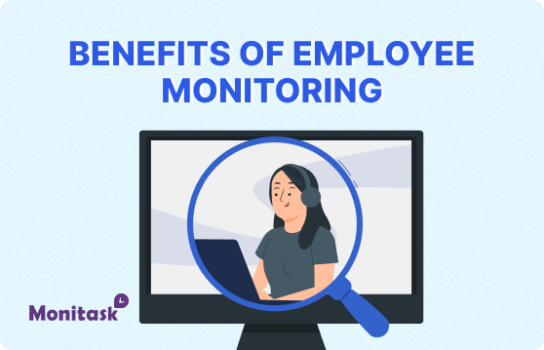What Is Focus Management?
Focus management is a strategic approach to optimizing employee productivity and well-being by enhancing attention, reducing distractions, and prioritizing tasks effectively. It involves techniques and policies that help individuals and teams maintain concentration on high-value activities, ultimately leading to improved performance and job satisfaction.
In the fast-paced world of modern business, where distractions are abundant and attention spans are shrinking, focus management has emerged as a critical aspect of organizational success. This comprehensive guide delves into the intricacies of focus management, exploring its significance, methodologies, and impact on both individual and corporate performance.
Understanding Focus Management
Focus management refers to the deliberate practice of directing and maintaining attention on specific tasks or goals while minimizing distractions. It encompasses a range of strategies and techniques designed to enhance concentration, improve productivity, and reduce cognitive overload.
Key Components of Focus Management:
- Attention allocation
- Distraction mitigation
- Task prioritization
- Time management
- Cognitive resource optimization
According to a study by the University of California, Irvine, it takes an average of 23 minutes and 15 seconds to refocus after an interruption. This statistic underscores the importance of effective focus management in today's workplace.
The Science Behind Focus Management
Focus management is rooted in cognitive science and neurobiology. Research has shown that the human brain has limited attentional resources, and constant task-switching can lead to cognitive fatigue and reduced productivity.
The ability to focus is a competitive advantage in the information age. – Cal Newport, author of "Deep Work"
Neuroscientists have identified several brain regions involved in attention and focus, including the prefrontal cortex and the anterior cingulate cortex. Understanding these neural mechanisms can inform strategies for improving focus and concentration.
The Role of Neurotransmitters
Neurotransmitters play a crucial role in regulating attention and focus. Here's a brief overview of key neurotransmitters involved:
| Neurotransmitter | Role in Focus |
| Dopamine | Motivation and reward |
| Norepinephrine | Alertness and attention |
| Acetylcholine | Learning and memory |
Benefits of Effective Focus Management
Implementing robust focus management strategies can yield numerous benefits for both individuals and organizations:
- Increased productivity: By minimizing distractions and optimizing attention, employees can accomplish more in less time.
- Enhanced quality of work: Focused attention leads to fewer errors and higher-quality outputs.
- Improved job satisfaction: Employees who can effectively manage their focus often experience less stress and greater job satisfaction.
- Better work-life balance: Efficient focus management can help employees complete tasks more quickly, allowing for better separation between work and personal life.
- Increased innovation: Deep focus facilitates creative problem-solving and innovation.
Focus Management Techniques
There are numerous techniques and strategies that can be employed to enhance focus and manage attention effectively:
1. The Pomodoro Technique
Developed by Francesco Cirillo in the late 1980s, the Pomodoro Technique involves working in focused 25-minute intervals (called "Pomodoros"), followed by short breaks. This method helps maintain concentration and prevents burnout.
2. Time Blocking
Time blocking involves scheduling specific time periods for different tasks or types of work. This technique helps create a structured workday and reduces the need for constant task-switching.
3. Mindfulness and Meditation
Regular mindfulness practice and meditation can improve overall focus and attention span. A study published in the journal Psychological Science found that just two weeks of mindfulness training significantly improved participants' focus and working memory capacity.
4. Digital Detox
Implementing periods of reduced digital engagement can help reset attention spans and improve focus. This might involve designated "no-phone" hours or using apps that limit access to distracting websites and applications.
5. Environmental Optimization
Creating a work environment conducive to focus is crucial. This may include noise-cancelling headphones, ergonomic furniture, or dedicated focus spaces within the office.
Focus Management in the Workplace
Organizations can implement various strategies to support focus management among their employees:
1. Flexible Work Arrangements
Offering flexible work hours or remote work options can allow employees to work during their peak focus periods.
2. Meeting Management
Implementing strict meeting policies, such as "No Meeting Wednesdays" or limiting meeting durations, can help preserve large blocks of focused work time.
3. Training and Development
Providing employees with training on focus management techniques and tools can empower them to take control of their attention and productivity.
4. Technology Solutions
Implementing software tools that support focus management, such as project management platforms or time-tracking apps, can help employees stay on task.
The Economic Impact of Focus Management
The economic implications of effective focus management are significant. A report by McKinsey Global Institute estimated that employees spend 28% of their workweek managing email and nearly 20% searching for internal information or tracking down colleagues who can help with specific tasks.
Translating this into monetary terms, for a company with 1000 employees earning an average salary of $50,000 USD per year, improving focus management could potentially save:
28% of 40 hours = 11.2 hours per week 11.2 hours * 52 weeks = 582.4 hours per year 582.4 hours * $24.04 (hourly rate based on $50,000/year) = $14,000 per employee
For the entire company: $14,000 * 1000 employees = $14,000,000 USD in potential productivity gains.
Challenges in Implementing Focus Management
While the benefits of focus management are clear, implementing these strategies can present several challenges:
- Resistance to change: Employees may be resistant to altering established work habits.
- Technology addiction: The pervasive nature of digital devices can make it difficult to disconnect and focus.
- Organizational culture: Some company cultures may inadvertently promote constant connectivity and immediate responsiveness, which can hinder focus.
- Individual differences: What works for one employee may not work for another, necessitating personalized approaches.
The Future of Focus Management
As we look ahead, several trends are likely to shape the future of focus management:
1. AI-Powered Focus Tools
Artificial intelligence is being integrated into focus management tools, offering personalized recommendations and adaptive scheduling based on individual work patterns and peak productivity times.
2. Neurofeedback Technology
Advancements in neurofeedback technology may allow for real-time monitoring and optimization of focus and attention levels.
3. Virtual Reality (VR) Focus Spaces
VR technology could be used to create immersive, distraction-free work environments, especially beneficial for remote workers.
4. Biometric Monitoring
Wearable devices that track physiological markers of focus and stress could provide valuable insights for personalized focus management strategies.
Conclusion
Focus management is not just a trendy concept but a critical skill for success in the modern workplace. As organizations and individuals alike grapple with increasing distractions and information overload, the ability to effectively manage attention and focus will become ever more valuable.
By implementing comprehensive focus management strategies, companies can unlock significant productivity gains, improve employee well-being, and gain a competitive edge in an increasingly attention-scarce world.
As we continue to navigate the complexities of the digital age, focus management will undoubtedly remain a key area of interest for HR professionals, organizational psychologists, and business leaders alike. The challenge lies in finding the right balance between connectivity and focused work, between collaboration and individual concentration.
Ultimately, the goal of focus management is not just to increase productivity, but to create a work environment where employees can thrive, innovate, and find fulfillment in their professional lives. As we move forward, the organizations that master this delicate balance will be well-positioned to lead in their respective industries.
Key Takeaways: • Focus management is essential for productivity and well-being in the modern workplace. • Effective strategies include the Pomodoro Technique, time blocking, and mindfulness practices. • Organizations can support focus management through flexible work arrangements, meeting policies, and technology solutions. • The economic impact of improved focus management can be substantial, potentially saving millions in productivity costs. • Future trends in focus management include AI-powered tools, neurofeedback technology, and VR focus spaces.
For more information on focus management and its implementation in the workplace, visit the Society for Human Resource Management (SHRM) resource page on Employee Relations.


